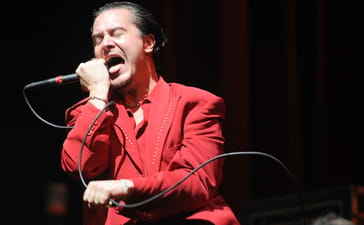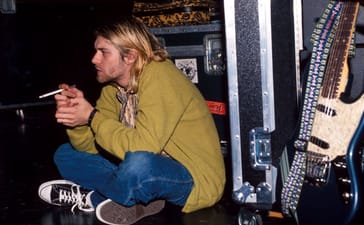When you hear LÂLKA on a record, she reminds you of the person you want to be. If only we could all be that brazen, unchained in experimentation and completely unafraid of saying whatever we damn well please. On her new release The Way Music Looks, LÂLKA wields the power of electronic/pop experimentation to reflect on her identity, both as a woman and a person of colour.
Behind the mic as well as the production of the EP, LÂLKA creates an edgy rollercoaster of hyperpop that sneaks you into the back corners of what’s going on in her head. At its core, The Way Music Looks truly is about LÂLKA embracing and celebrating who she is, through the lens of the sounds that she loves the most.
Speaking to Blunt Magazine, she explains that even though the EP was written and recorded prior to the events of the last month here in Australia and around the world, it remains “really relevant and probably even more relevant to a lot of people who really need to borrow that strength, because the content of the EP is so self-assured. I wouldn’t call it positive in a way, but I would say it’s incredibly self-assured in one’s sense of self-worth and power. I see people need that more than ever.”
The same weight we all felt when we put our tools down and stopped to pay attention to the Black Lives Matter movement was pervasive for LÂLKA during the last few weeks, grappling with the anticipation of releasing new music and her solidarity with a greater crusade for justice happening around her. That crusade was amplified in the March 4 Justice that took place in Canberra, and the outpouring of support for the Asian community after the violent events we saw in America. She describes her feeling at the time as “the joy and pride of a new work out and yet juggling the grief of what’s currently, what I’m facing and what my community’s facing and what women are facing in this country as well with everything.”
To believe that someone who has had difficult experiences as a woman and as a member of the Asian community would be unstirred by what was happening at the time would be far more bizarre. She, like most of us, disagrees with the efficacy of a “consent app”, but does have a suggestion as to where we could start our real journey to creating an inclusive society rather than just talking shit about it when it comes up.
“One of the ways to do that is to then elevate the voices of the oppressed, whether it’s black women, whether that’s trans folk, disabled folk…Basically, [if] their voices aren’t elevated [then] they’re not going to get heard. And if their voices aren’t getting heard, then people won’t learn. When I think about how ignorant I was, I am still ignorant, but I’m slightly more educated now than I was 18 months ago. And that’s only because I’ve had a chance to listen to these voices.”
That chance has arisen because LÂLKA has actively pursued her education in understanding the people around her better, recommending the following books for others to do the same: Hood Feminism by Mikki Kendall, Uncomfortable Conversations With A Black Man by Emmanuel Acho, Why I’m No Longer Talking to White People About Race by Renni Eddo-Lodge and essay collection Nasty Women curated by Kate Harding and Samhita Mukhopadhyay. While the publications are centred on other countries, responding to racism is, unfortunately, a problem that transcends just our nation.
“What I love about these books is not that it makes me feel good, like, ‘I’m such a feminist, I’m reading this’, but…I feel like a lot of times, I have all these emotions that I don’t know how to articulate or maybe don’t completely understand. And that’s why I encourage people to read because you might find things that you completely disagree with and that is totally okay. Or you could read something and just go, ‘Oh my God, that person has phrased that so perfectly, everything I felt and didn’t know how to articulate’ and to have writers do that is fantastic. But it also…there were so many things that I haven’t experienced that they have experienced.”
Ultimately, LÂLKA will go on to do that for other people – to be the person that articulates the feelings that they don’t completely understand. And she’s going to go on to do so much more just by educating herself and educating others.
Referring to the rise of anti-Asian sentiments in the past year, she reflects on what we can do next. “It’s been there all along, but the reason why it’s kind of bubbled and exploded is because of this rhetoric of the orange man. And if he hadn’t had that platform, I just don’t think it would have bubbled to this point. But he had that platform, he used his platform to incite all this hate. And so it made me think like, ‘Okay, well that’s happened, but then how do you reverse it?’”







